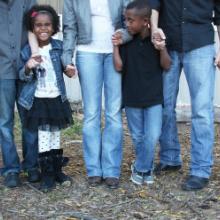jen hatmaker
Of Mess and Moxie: Wrangling Delight Out of This Wild and Glorious Life will be released on Aug. 8. Hatmaker spoke with RNS about both mess and moxie, banned books and maintaining a healthy outlook on life. This interview has been edited for length and clarity.
“I think there’s a moment of great creativity for women leaders in the religious sphere,” said the Rev. Katharine Rhodes Henderson, president of Auburn Theological Seminary, and author of God’s Troublemakers: How Women of Faith Are Changing the World.
“I think that we are seeing, in lots of areas of American life, that some of the traditional structures that served well for a long period of time are no longer doing so. … A time of change means there’s a possibility of new types of leadership and new people doing it.”

Image via wavebreakmedia/Shutterstock.com
“I think it took a comment from Trump that personally affected a majority of evangelicals for there to be a tipping point,” said Katelyn Beaty, editor at large of Christianity Today, and author of A Woman’s Place: A Christian Vision for Your Calling in the Office, the Home, and the World.
“More than half of every church is women, and all those women are affected by comments about sexual assault.”
Before she and her husband adopted a son and daughter from Ethiopia, popular evangelical blogger Jen Hatmaker said she had a different view about race in America.
“A couple years ago, I would’ve said we’re moving to a post-racial society because I was so under-exposed to people of color and the issues they deal with on a daily basis,” said the white Christian author, whose home renovation to make space for their growing family of seven was recently featured on HGTV.
As evangelicals have turned their attention toward adoption in the past decade, families like the Hatmakers are grappling with race relations in a profoundly personal way, especially as national news spotlights racial tension in New York, Ferguson, Mo., and elsewhere.
And evangelicals aren’t alone: A new Gallup poll found that 13 percent of Americans believe racism is the country’s most important problem, the highest figure since the 1992 verdict in the Rodney King case sparked riots in Los Angeles.
And, as Gallup noted: “After barely registering with Americans as the top problem for two decades, race relations now matches the economy in Americans’ mentions of the country’s top problem, and is just slightly behind government (15 percent).”


